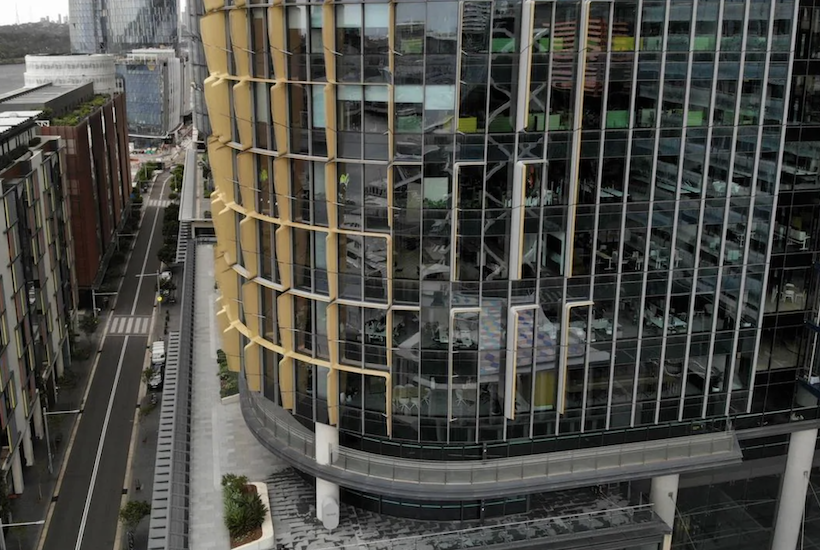Questions arise over workers returning to the office in 2021

One of the biggest questions facing Australians as they start their summer breaks is when or even if they will make a return to their traditional desks 9-5 next year.
For many, the jury is out as they are keen to get back to colleagues but wary of being exposed to the coronavirus while commuting.
And then there is a growing group that has found home, despite the interruptions from family and social life, a much better place to be than tethered to a desk.
But bosses want them back.
Brisbane-based Jamie Pherous, head of Corporate Travel Management, who employs 2400 staff in CBDs around the world, strongly believes it is better for staff to work in offices than from home, particularly those aged under 35 years.
“We have a strong view in that with collaboration and problem solving people are better in an office,” Mr Pherous told The Weekend Australian.
“We are all part of a community and we want to play our part in helping the small businesses in CBD’s like sandwich shops and coffee shops, in fact all the small businesses that rely on office workers in the CBD to be profitable,” said Mr Pherous, who works from his Brisbane office each day.
He said CTM’s younger staff, those under the age of 35, prefer the social aspect of being in an office.
“I would like to see the same leadership from the large companies in our country, it is lacking if they really want to help the community the best thing they can do is get people back to offices and help economies, coming back to the office is the biggest contribution,” he said.
Speaking from London overnight Flight Centre co-founder Graham Turner said he is encouraging staff at his Australian and New Zealand offices to return to work.
But in the company’s US and British operations, they are generally working from home.
Locally, major landlords are already preparing for big changes in the way that people work in the wake of the pandemic.
QIC Global Real Estate expects reduced demand for office space and subdued white-collar employment rates around the country due the economic recession.
Will demand reduce?
The fund manager projects that demand for office space will reduce by 700,000sq m over 2020 and 300,000sq m over 2021 from pre-COVID levels.
The big change is expected to come as demand for office space is hit by the accelerated trend towards work from home or more flexible arrangements.
QIC says companies will hold on to their flagship central locations and half the workforce is expected to work from home two days per week post-COVID-19.
The fund manager says activity-based working will increase, moving from the traditional arrangement of one desk per employee to a more flexible structure with desk booking systems allowing for staff to reserve space.
Investa head of research and strategy David Cannington says a significant number of tenants are unsure how they will use their workplaces and the top tier city landlord is in close contact with its blue chip tenants about their intentions.
Mr Cannington estimates the long-term net impact will be a drop of about 10 to 15 per cent in demand for space with the biggest impact in lower grade office assets.
The firm’s surveys show the net increase in the average number of days at home each week could rise to about 2 to 2½ days. But Investa notes that requirements for social distancing and the longer-term shift towards collaborative space and meeting rooms, would drive the upward pressure on work space ratios by 15 to 20 per cent.
“We’re also seeing a pendulum shift over the past six months in sentiment towards a return to the office as businesses are questioning the benefits of home-based work and appreciating the advantages of getting staff back to the office,” he added.
Investa expects that the net negative impact on office demand will settle at the lower end of expectations, rather than more dire predictions of falls of 20 to 25 per cent.








